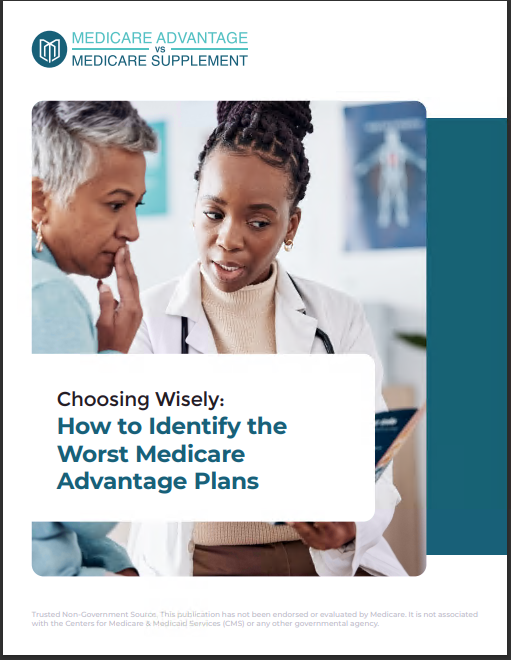Key Takeaways:
-
Missing Medicare enrollment deadlines can result in costly penalties and delays in coverage.
-
Understanding key timelines and preparing ahead ensures you can access the healthcare you need without interruptions.
Why Timing Matters More Than You Think
Medicare isn’t just a one-size-fits-all program you can join whenever you feel like it. Enrollment periods are structured, and missing them could leave you without coverage for months or even lead to lifetime penalties. By staying informed about key dates and deadlines, you can make choices that save time, money, and stress. Missing these deadlines often has ripple effects, complicating your healthcare situation more than you might anticipate.
Acting early doesn’t just avoid penalties; it allows you to plan proactively for future healthcare needs. When you miss an enrollment window, not only do penalties pile up, but you also risk longer waiting periods, particularly during the General Enrollment Period. These delays could put you at a disadvantage if you require immediate medical attention.
Understanding Medicare Enrollment Periods
Initial Enrollment Period (IEP)
Your Initial Enrollment Period is your first opportunity to sign up for Medicare. It lasts for seven months: three months before your 65th birthday month, the month of your birthday, and three months after. Enrolling during this window ensures your coverage begins when you need it.
-
If you enroll early: Coverage starts on the first day of your birthday month.
-
If you wait until your birthday month or later: Your coverage could be delayed, which might leave you without healthcare access when you need it most.
General Enrollment Period (GEP)
If you miss your Initial Enrollment Period, the General Enrollment Period runs from January 1 to March 31 every year. However, coverage won’t start until July 1, leaving a potential gap in your healthcare access. This gap can be particularly concerning if you’re managing chronic conditions or require regular doctor visits.
Special Enrollment Period (SEP)
Certain life events trigger a Special Enrollment Period, such as losing employer-based health insurance or moving to a new area. SEPs allow you to sign up outside standard enrollment periods without penalties, but you must act quickly, as deadlines vary based on the event. These enrollment periods are designed as safety nets, but they come with their own specific timelines and rules, so understanding them thoroughly is crucial.
The Costs of Missing Deadlines
Late Enrollment Penalties
If you don’t enroll in Medicare Part B or Part D when first eligible, you could face penalties:
-
Part B: A 10% increase in your monthly premium for each year you delay.
-
Part D: A penalty calculated based on the number of months you went without prescription drug coverage.
These penalties are permanent, so missing deadlines can cost you for the rest of your life. For instance, if you delay for three years, your Part B premiums could increase significantly, and the added cost doesn’t go away, even if you eventually enroll.
Gaps in Coverage
Failing to enroll on time can leave you without healthcare coverage, forcing you to pay out-of-pocket for medical services. For example, delaying Medicare Part A or Part B could result in high hospital or doctor’s bills. This situation can be financially devastating, especially for individuals on fixed incomes. Coverage gaps also mean missing out on essential preventive care services, which are often fully covered by Medicare.
How to Stay on Track
Set Reminders
Mark your calendar with key Medicare deadlines. Set alerts three months before your 65th birthday to start researching and enrolling. If digital reminders don’t work for you, consider using a physical calendar or sticky notes to keep the dates visible.
Review Your Options Early
Explore Medicare plans well before your enrollment period begins. This allows you to understand the costs, benefits, and coverage options that fit your healthcare needs. Researching early also gives you time to clarify confusing details, so you don’t feel rushed into making decisions.
Use Online Tools
Online resources and government websites can help you calculate your costs, check eligibility, and compare plans. Take advantage of these tools to simplify the process. Interactive tools that break down benefits side by side can be particularly helpful if you’re torn between options.
Keep Important Documents Ready
Ensure you have essential documents like proof of age, Social Security information, and employer coverage details (if applicable) ready before your enrollment period begins. Keeping these documents in a designated folder can streamline your application process.
Key Timelines to Keep in Mind
-
Initial Enrollment Period: Seven months around your 65th birthday.
-
General Enrollment Period: January 1 to March 31 annually.
-
Medicare Open Enrollment Period: October 15 to December 7 annually for changing or reviewing plans.
-
Special Enrollment Periods: Based on specific life events like job loss or relocation.
It’s important to revisit these timelines periodically, especially if your circumstances change. For example, if you’re planning to retire after age 65, understanding how to coordinate your Special Enrollment Period with employer coverage end dates is essential.
Common Missteps and How to Avoid Them
Assuming You’re Automatically Enrolled
While some people are automatically enrolled in Medicare, many are not. Double-check your enrollment status, especially if you’re not already receiving Social Security benefits. This common assumption often leads to missed deadlines and unnecessary penalties.
Waiting Too Long
Procrastination can lead to missed deadlines, penalties, or coverage gaps. Act as soon as your enrollment window opens. Even a short delay in enrolling can result in a costly oversight that takes years to correct.
Overlooking Prescription Coverage
Medicare Part D or equivalent drug coverage is essential. If you skip this, you could face penalties and high out-of-pocket costs later. Prescription drug costs often increase with age, making early enrollment a financial safeguard.
Not Reviewing Plan Changes
Even after enrolling, review your coverage annually during the Open Enrollment Period. Medicare plans often change benefits, costs, and networks, so staying updated is crucial. Overlooking these updates can lead to surprises in your healthcare expenses.
Making Enrollment Easier
Talk to an Expert
Medicare advisors can help clarify your options and ensure you’re meeting deadlines. Many offer free consultations to guide you through the process. Seeking advice early can prevent mistakes and provide peace of mind.
Consider Your Long-Term Needs
Think about how your healthcare needs might evolve. Enrolling in the right plan from the start can prevent future headaches. For example, if you anticipate needing regular specialist visits, ensure your chosen plan includes a wide provider network.
Stay Organized
Keep all Medicare-related documents in one place. This makes it easier to provide information or reference details during enrollment. Organization is particularly important if you need to appeal a penalty or verify your eligibility for a Special Enrollment Period.
The Bottom Line: Don’t Risk Delays or Penalties
Missing Medicare deadlines can lead to significant financial and healthcare challenges. By understanding the enrollment periods and acting promptly, you can secure the coverage you need without unnecessary costs or stress. Preparation and awareness are your best tools for navigating the Medicare enrollment process successfully.










